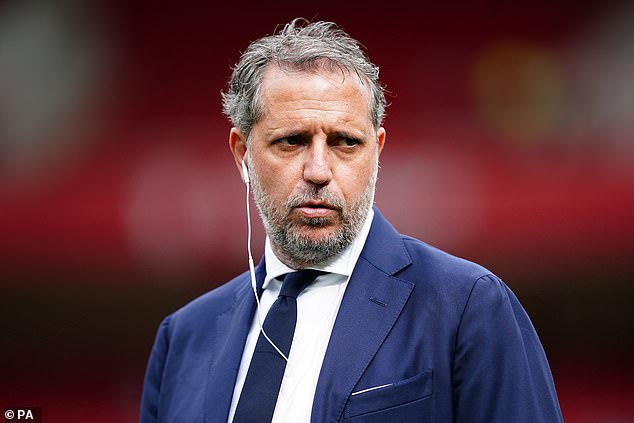Tottenham Hotspur have confirmed the return of Fabio Paratici as their sporting director, ending speculation about his next move following a 30-month ban for alleged false accounting.
The Italian executive had previously left Spurs in April 2023 after serving two years in his first spell at the club, during which his suspension from football operations was upheld despite an unsuccessful appeal.
Paratici’s comeback comes at a moment of transformation for Spurs, following the departure of long-serving chairman Daniel Levy in September.
The club is now under the operational leadership of Vinai Venkatesham, while Peter Charrington has taken over as non-executive chairman.
Paratici’s Role and Vision at Spurs
Speaking on his return, Paratici expressed excitement about rejoining the club full-time.
“I’m delighted to be returning to a club that I love,” he said.
“I have been working with Johan, Vinai, and Thomas as a consultant for several months, and I now look forward to returning to London and joining the team full-time.
I’m convinced that working in partnership with Johan we can build a special future for our club and supporters.”
He will share the sporting director duties with Johan Lange, formerly of Aston Villa, as Spurs look to establish a strong leadership structure to drive success on and off the pitch.
Legal Case Resolution and Career Impact
Paratici’s ban stemmed from his involvement in alleged financial irregularities during his time at Juventus.
In Italy, the legal case concluded last month when a judge in Rome accepted a plea bargain from former Juventus executives.
Previously agreed suspended prison sentences included 18 months for Paratici, 20 months for Andrea Agnelli, and 14 months for Pavel Nedved.
All three deny wrongdoing. Juventus was also fined £136,000, with the club stressing that the plea agreement “does not entail any admission or recognition of liability.”
During his suspension, Paratici remained involved with Spurs as an unofficial consultant, fueling speculation about a potential return despite links to AC Milan.
Club Leadership and Strategic Ambitions
Vinai Venkatesham welcomed the appointment of Spurs’ two sporting directors, highlighting the importance of combining their expertise.
“The remit of a sporting director is vast, and by uniting two exceptional leaders in Johan and Fabio, we’re setting the foundations for sustained success,” he said.
“They are both outstanding football minds with complementary expertise and strong track records.
Together, Fabio and Johan will lead with purpose—building not only a competitive men’s squad but a connected football ecosystem where every detail contributes to our shared ambition: to make our club a benchmark for excellence in world football.”
Spurs’ Promising Start to the Season
Tottenham have enjoyed a strong start under manager Thomas Frank, sitting third in the Premier League after seven games, with just one loss.
Fans will have a chance to see the club’s new leadership in action when Spurs host Aston Villa in north London on Thursday.
Share on Facebook «||» Share on Twitter «||» Share on Reddit «||» Share on LinkedIn
